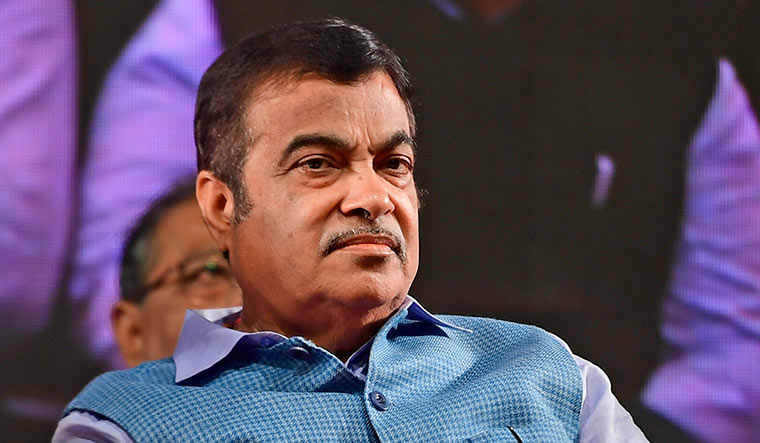NITIN GADKARI has been busy. Apart from accelerating road construction across the country, the Union minister has been quite vocal about the need to shift to non-polluting vehicles and in defending the new stringent Motor Vehicles Amendment Act. He has no doubt electric vehicles are the future, but he is not planning to ban petrol and diesel vehicles. Excerpts from an exclusive interview:
Q/ There were announcements in the budget and afterwards to push electric vehicles. It seems the pace has now slowed down.
A/ There is no question of banning conventional automobiles. We are encouraging alternate fuel—ethanol, butanol, bio diesel, bio-CNG and electricity so that we have a substitute that is cost effective, pollution-free and indigenous. The nation would like to reduce its import bill on crude oil, which amounts to Rs7 lakh crore. Every nation would like to reduce their import bill, and we are trying to do it with swadeshi technology.
Secondly, we have surplus electricity generation capacity. We are bringing in electric highways and electric charging stations. It is clean fuel and it is the future. But that does not mean we are doing it by planning any sort of bans on petrol and diesel vehicles. We are fully supporting the automobile industry.
The incentives for EVs are meant to increase their production. I believe India can become the world’s No.1 manufacturing hub for electric vehicles, and that in the coming days, our electric bikes, electric autorickshaws and buses will be exported.
Q/ The ICE automobile industry is troubled.
A/ The slowdown in the auto industry is due to a lot of other reasons. It is due to the global economy, demand-supply issues and business cycles. We are with the auto industry and supporting them in whatever way possible.
Q/ The auto industry had proposed that full conversion to electric vehicles is possible only by 2047. Do you think it should happen earlier?
A/ We have never set any deadline, yet why is the media forever quoting me on this? I have never said it, and there is no question of such a time limit. It will happen in its natural course.
Q/ Regarding charging stations.
A/ Technology is changing rapidly when it comes to charging stations. I think newer (discoveries) are coming up.
Q/ Do you think the conventional petrol pumps installing charging stations could be a way out?
A/ In Nagpur city, Ola runs 250 electric taxis and there are enough charging stations. I had recently created a community organisation, where charging stations were installed in the parking area with capacity for 600 vehicles. Same could be done in [other places]. Newer technologies are also coming in. As the number of vehicles increases, charging stations will increase. The best technology will [get established] and people will get cheap electricity from them.
Q/ What would be the next step?
A/ Public transport running on electricity. China has 60 lakh buses, we have 10 lakh. We need to create a comfortable, cost-effective public transport system running on clean electric fuel. That can contribute more jobs, less pollution, cut import costs and contribute to the nation’s growth.


